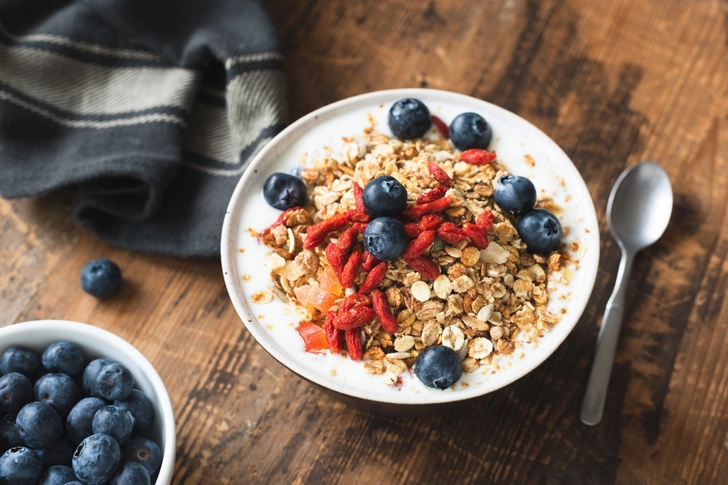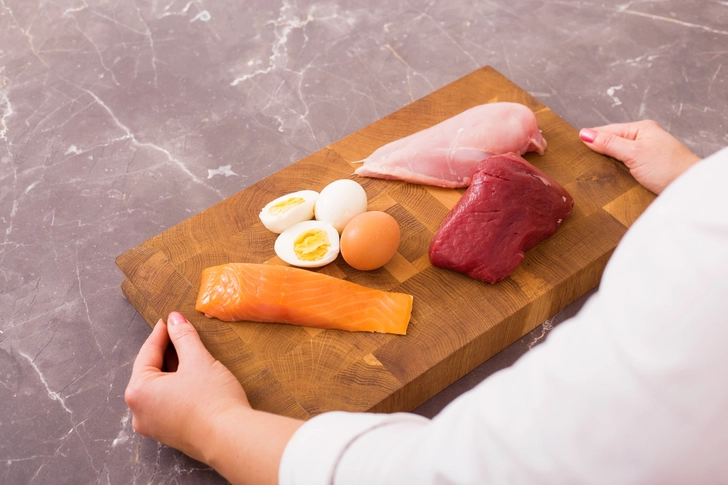10 Foods for Gut Health and Weight Loss


Fermented Foods
Fermented foods like yogurt, kefir, kimchi, and sauerkraut are rich in probiotics, which are beneficial bacteria that can improve the balance of microbes in your gut.

Bananas
Bananas are a great source of inulin, a type of fiber that helps good bacteria in your gut thrive.

Leafy Greens
High in fiber and a special carb, leafy green vegetables like spinach, kale, and broccoli are beneficial for gut health.

Whole Grains
Whole grains contain fiber that can't be broken down, so they reach your lower gut and feed the helpful bacteria there.

Polyphenol-Rich Foods
Colorful foods like berries, tea, coffee, and red wine are rich in polyphenols, which can promote the growth of good gut bacteria.

Lean Protein Sources
Red meat can trigger the growth of unhealthy gut bacteria, so opt for leaner protein sources like fish, beans, and tofu.

Avoid Fried Foods
Fried foods can damage healthy gut bacteria, so it's best to limit or avoid them.

Avoid Foods With Antibiotics
Antibiotics can kill both good and bad bacteria in your gut, so it's important to limit foods that contain them, such as animal products that have been treated with antibiotics.

Limit Alcohol
Alcohol can disrupt the balance of bacteria in your gut, so it's best to consume it in moderation.

Be Mindful of Caffeine
Too much caffeine can irritate your digestive system, leading to diarrhea. Be mindful of your caffeine intake and stick to moderate amounts.
Photo Credits:
Slide 1: E+/Getty Images
Slide 2: DigitalVision/Getty Images
Slide 3: iStock/Getty Images Plus
Slide 4: iStock/Getty Images Plus
Slide 5: Moment/Getty Images
Slide 6: 500px/Getty Images
Slide 7: 500px/Getty Images
Slide 8: iStock/Getty Images Plus
Slide 9: iStock/Getty Images Plus
Slide 10: Moment/Getty Images
Christopher Damman, MD, clinical associate professor, Division of Gastroenterology, University of Washington Medical School, Seattle.
Journal of Experimental Medicine: “The gut microbiome: Relationships with disease and opportunities for therapy.”
Elizabeth Hohmann, MD, physician investigator, Massachusetts General Research Institute; associate professor of medicine, Harvard Medical School, Boston.
Rosa Krajmalnik-Brown, PhD, director, Biodesign Center for Health Through Microbiomes, Arizona State University, Phoenix.
World Journal of Gastroenterology: "Gut microbiota in obesity.”
Nature Communication: “Machine learning prediction of the degree of food processing,” “Host-diet-gut microbiome interactions influence human energy balance: a randomized clinical trial.”
Obesities: “Gut Microbiota and Obesity: The Chicken or the Egg?”
Katie Chapmon, registered dietician, Los Angeles.
Foods: “Health Benefits and Side Effects of Short-Chain Fatty Acids.”
Nutrients: “Fermented Foods, Health and the Gut Microbiome.”